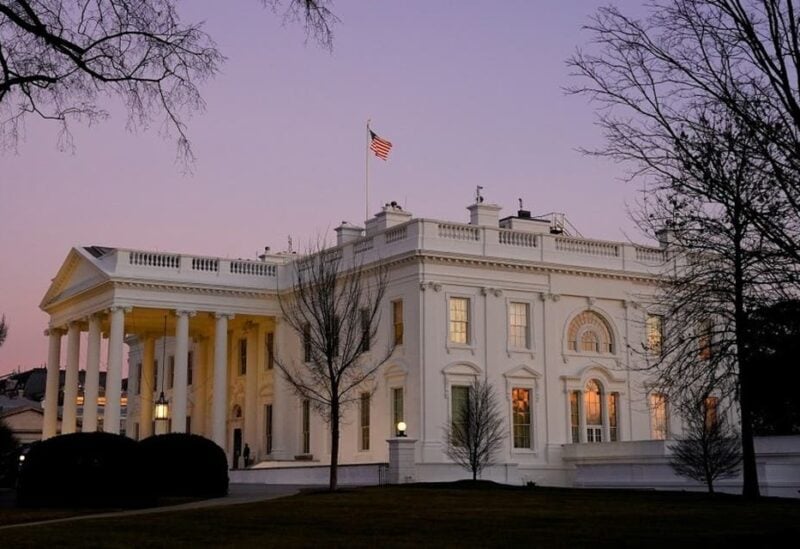
The White House is seen at sunset on US President Joe Biden's first day in office, Jan. 20, 2021. (Reuters)
Republican Senator Jim Risch criticized the progress of negotiations with Iran in Vienna. In exclusive statements to Asharq Al-Awsat, he said that talks with Tehran continued to stumble, noting that officials in the administration of President Joe Biden “disagree about the American approach.”
The administration should intensify pressure on Iran and set a specific date for ending negotiations, applying sanctions, imposing additional ones, and adopting a policy of deterrence in the region, he stressed.
Risch, a senior Republican in the Senate Foreign Relations Committee, considered that the recent attacks in Al Dhafra (in the vicinity of Abu Dhabi), where US forces are stationed, increased the need for a strong response.
If the Iranian regime refuses to come to the table, the US must be ready to leave the negotiations, he underlined.
Meanwhile, recent statements about the nuclear negotiations reaching a “dangerous crossroads” reflect concern not only of Washington’s allies, but also of the US negotiating team itself.
The US State Department confirmed in press statements the resignation of Richard Nephew, the deputy US special envoy for Iran, which reflects deep differences over the management of the nuclear talks.
While the Wall Street Journal confirmed that two other members of the negotiating team led by Robert Malley had also withdrawn, as they insisted on a “tougher” position with Iran, the newspaper revealed that the nuclear talks had entered a critical stage.
Richard Goldberg, a senior adviser at the Institute for Defense of Democracies in Washington and former director of the Iran Accountability for Weapons of Mass Destruction division at the National Security Council, said that all signs pointed to “increasing desperation” on the part of the US team for any agreement they can get with Iran.
He told Asharq Al-Awsat that this would allow the Iranian regime to preserve more of its nuclear gains and obtain more economic benefits at the same time.
According to Goldberg, Richard Nephew was removed from his post last month, and the administration did not plan to announce it. He argued that Nephew’s departure meant that he likely objected to the United States offering terms that come in contradiction with long-term nonproliferation goals and undermine the IAEA’s investigation into Iran’s undeclared nuclear sites, materials, and activities.
Nephew, who had called for a tougher stance in the current negotiations, had not attended the talks in Vienna since early December, according to the Wall Street Journal.
The divisions come at a critical time, with US and European officials warning that there were only a few weeks left to save the 2015 deal before Iran acquired the knowledge and ability to produce nuclear fuel that would allow it to build a nuclear bomb in no time.
Among the points of contention within the US team – informed sources said – is the disagreement over the firmness of enforcing existing sanctions and whether negotiations should be cut short due to the progress of Iran’s nuclear program.
Some members of the US team called for an end to negotiations with Tehran after it reneged on most of the pledges made by the previous Iranian government, led by President Hassan Rouhani. Others argued that it would be impossible to restore the primary objective of the 2015 agreement, i.e. Iran remaining 12 months away from having enough nuclear fuel to build a nuclear weapon.